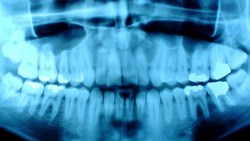
Top stories





Marketing & MediaWarner Bros. was “nice to have” but not at any price, says Netflix
Karabo Ledwaba 1 day

More news

Logistics & Transport
Maersk reroutes sailings around Africa amid Red Sea constraints

















"We are gravely concerned about recent media reports that South African dentists are smiling because of the profits they are making," says Maretha Smit, chief executive of SADA. "Figures are regularly misquoted and taken out of context which creates the impression that dental practices are making huge profits. This is simply not true of a profession which is known to be struggling to keep its doors open to the public."
"In reports, overall practice turnovers are often quoted without any reference to the high cost structures in dentistry, thus creating the impression of an exceedingly wealthy profession. In reality, only about 5% of dental practices specialise in cosmetic dentistry and even in these practices the true profits run at a mere 10 - 20% only!"
Smit continues: "Most serious businessmen will smirk at such low profit margins in a low turn-over environment. However, the situation is even worse in general dentistry. With profit margins in elective dentistry at such minimal levels, one can very well understand why so many dentists are leaving the country. Dentists must be allowed an opportunity at earning a decent professional income in return for the years of study towards this vocation."
SADA's chief dental officer, Dr Jeff Michelson points out that in the context of the current economy and the pressure brought about by medical schemes which are not providing adequate cover for essential dental procedures, the man in the street is placing dentistry low on the list of essential needs.
"Dentists in South Africa are by no means smiling. The high outlay for basic equipment, and the staggering costs of materials, most of which are imported from abroad, leaves very little room for a fair profit. And, very few patients understand that their Medical Aid Schemes are responsible for this failure for basic dentistry to be made accessible and that the scheme rates offered to dentists, in many instances, fall way below the actual costs of treatment and service."
To support this statement, Michelson pointed out that during the last number of years once thriving dental practices have been going bankrupt and fewer people are entering the profession than ever before, while emigration continues to void the profession.
In its discussions with medical funders and policy makers, the South African Dental Association is consistently making an effort to point out the inherent risks to patient care in a funding environment that patently disregard the need for sustainability in private practices. However, in its own pursuit of members and profits, medical schemes continue to promote "no co-payment" plans and the establishment of non-sustainable provider networks.
"For instance, payouts to dentistry from schemes have been reduced from 8.4% in the late nineties to 2.2% last year!" exclaims Maretha Smit. "It is time that members of Medical Schemes start asking serious questions and demand that benefits in this area of basic medical care are re-structured. If not, there will be very few dentists left in a country that can hardly afford the further loss of any of its medical services, let alone dentists."
While SADA prides itself on its ethical codes of conduct, subscribed to by its members, it is concerned that, in the current environment, it seems inevitable that something will have to give in an effort for dentists to make a living. The majority of dentists are currently facing an ethical dilemma of having to lower standards, use inferior materials and deliver an affordable but substandard service to clients. This ethical dilemma being faced by South Africa's dentists is growing by the day and SADA fears that this will lead to erosion in the quality and availability of dental care in our country.
"Misinformation given in the media does not help an already critical situation where an essential service is embattled. It is time that the public is made aware that dentistry in South Africa is a profession under threat and that it is a threat that extends to every household and every family of this country. Marginalization of the profession through inaccurate reporting, simply serves to make South Africa and its people the poorer. Unless the crisis in dentistry in South Africa is addressed, soon there will be no smiles from anyone around," Smit concludes.